When we talk about Herpes Simplex Virus (HSV), most people picture cold sores or genital sores. The reality is far messier: over 400million people worldwide carry HSV‑1 or HSV‑2, and the virus can hide in nerve cells for life. Recent breakthroughs in virology, gene editing and immunology are reshaping how we think about herpes treatment and prevention, turning a chronic nuisance into a potentially curable condition.
Key Takeaways
- Current antivirals suppress outbreaks but don’t eliminate the virus.
- CRISPR‑based gene editing shows promise for erasing latent HSV DNA.
- Three vaccine candidates - a protein subunit, a replication‑defective, and an mRNA platform - are in late‑stage trials.
- Topical microbicides and long‑acting suppressive regimens could cut transmission by up to 60%.
- Patients should stay informed about clinical trial enrollment and emerging preventive tools.
Understanding Herpes: The Virus and Its Lifecycle
HSV belongs to the Herpesviridae family, a group of double‑stranded DNA viruses. Two types dominate human infection:
- HSV‑1 - traditionally linked to oral lesions but increasingly responsible for genital cases.
- HSV‑2 - the primary cause of recurrent genital herpes.
After initial exposure, the virus travels along sensory neurons to the dorsal root or trigeminal ganglia, where it establishes latency. Periodic reactivation sends viral particles back to the skin or mucosa, producing the familiar sores. Because the latent reservoir hides from the immune system, antiviral drugs can only keep the virus in check, not wipe it out.
Current Standard of Care: Antiviral Suppression
The backbone of today’s management is nucleoside analogues that block viral DNA synthesis. The most widely used drugs are:
- Acyclovir - oral or topical, effective but requires multiple daily doses.
- Valacyclovir - a pro‑drug of acyclovir with better bioavailability, allowing once‑ or twice‑daily dosing.
- Famciclovir - similar to valacyclovir, often used for episodic therapy.
These agents reduce outbreak frequency by 70-80% and lower viral shedding, but breakthrough lesions still occur in up to 30% of patients on suppressive therapy. Moreover, resistance can emerge, especially in immunocompromised individuals.
Emerging Therapies: From Gene Editing to Therapeutic Vaccines
Scientists are targeting the virus at three crucial stages: latent DNA, reactivation triggers, and the host immune response.
CRISPR‑Based Gene Editing
CRISPR‑Cas9 can be programmed to cut HSV DNA inside neurons, potentially erasing the latent genome. In a 2023 mouse study, intrathecal delivery of a CRISPR‑Cas9 construct reduced detectable HSV DNA by 92% and prevented recurrent lesions for six months. Human trials are expected to start in 2025, focusing on safety and off‑target effects.
Therapeutic Vaccines
Unlike prophylactic vaccines that aim to prevent infection, therapeutic vaccines boost the immune system’s ability to control existing infection. Two platforms dominate:
- Recombinant glycoprotein D (gD2) subunit combined with adjuvant - showed 50% reduction in shedding in a Phase II trial.
- Replication‑defective HSV‑2 vectors expressing multiple antigens - induced robust T‑cell responses in Phase I/II studies.
These candidates are now moving into Phase III trials, with endpoints that include frequency of genital lesions and viral load in genital secretions.
mRNA Vaccine Platform
Riding the success of COVID‑19 mRNA vaccines, companies have designed mRNA strands encoding HSV‑2 gD and gB proteins. Early human data (2024) reveal strong neutralizing antibody titers and a favorable safety profile. If Phase III confirms efficacy, the product could become the first widely available prophylactic vaccine for HSV‑2.
| Intervention | Mechanism | Stage | Administration | Key Efficacy Metric |
|---|---|---|---|---|
| Acyclovir | DNA polymerase inhibitor | Approved | Oral 3‑5×/day | ~70% reduction in outbreak frequency |
| Valacyclovir | Pro‑drug of acyclovir | Approved | Oral 1‑2×/day | ~80% reduction in shedding |
| CRISPR‑Cas9 delivery | Genome editing of latent HSV DNA | Pre‑clinical (human trials 2025) | Intrathecal injection | ~92% reduction in detectable HSV DNA (mouse) |
| Therapeutic gD subunit vaccine | Boost T‑cell response | Phase III | Intramuscular, 2‑dose series | ~50% reduction in viral shedding |
| mRNA HSV‑2 vaccine | In‑situ protein expression | Phase III (planned) | Intramuscular, 2‑dose series | Target >70% seroconversion |

Prevention Innovations Beyond Condoms
While condoms remain the first line of defense, research is expanding the toolbox.
- Long‑acting suppressive therapy: Monthly injectable formulations of valacyclovir analogues are in Phase II, aiming for once‑a‑month dosing.
- Topical microbicides containing tenofovir or griffithsin show 45-60% reduction in HSV acquisition in animal models.
- Pre‑exposure prophylaxis (PrEP) protocols for high‑risk groups, modeled after HIV PrEP, are being piloted in US clinics.
Integrating these measures with routine screening could cut community transmission rates substantially, especially in regions with limited healthcare access.
Public Health Impact and the Road Ahead
According to the World Health Organization, HSV‑2 prevalence among adults aged 15‑49 is 11% globally, with higher rates in sub‑Saharan Africa (up to 30%). The psychosocial burden-stigma, anxiety, relationship strain-often outweighs physical symptoms. New interventions promise to shift the narrative from “living with a chronic virus” to “preventable and potentially curable.”
Key milestones to watch:
- 2025: First human CRISPR safety trial concludes.
- 2026: Phase III results for the replication‑defective vaccine released.
- 2027: Regulatory approval of an mRNA prophylactic vaccine in EU and Australia.
- 2028: Global rollout of long‑acting injectable suppressive therapy.
Healthcare providers will need to update counseling scripts, incorporate new vaccine recommendations, and guide patients through clinical trial enrollment when appropriate.
Practical Checklist for Those Living with HSV
- Know your type: Request HSV‑1 vs HSV‑2 testing to tailor management.
- Stay on suppressive meds: If you have frequent outbreaks, daily valacyclovir reduces transmission risk by ~50%.
- Watch for resistance: Talk to your doctor if lesions persist despite therapy.
- Consider trial participation: Look for local sites offering CRISPR or vaccine studies.
- Practice safer sex: Use condoms, discuss PrEP options, and be honest with partners.
- Follow emerging guidance: Subscribe to updates from the WHO and national health agencies.
Frequently Asked Questions
Can HSV be cured with current treatments?
No. Existing antivirals only suppress viral activity. They do not eliminate latent virus from nerve cells. Ongoing research aims to achieve a functional cure, but it isn’t available yet.
Is there a vaccine for herpes?
Several candidates are in late‑stage trials, including a protein subunit, a replication‑defective vector, and an mRNA vaccine. None have market approval yet, but results expected between 2026‑2028 could bring the first licensed vaccine.
How effective are condoms at preventing HSV?
Condoms reduce genital HSV transmission by roughly 30‑50%. They don’t cover all skin areas, so risk isn’t zero, but they remain a vital protective measure.
What is the most promising emerging therapy?
CRISPR‑based genome editing shows the highest potential to eradicate latent HSV, but safety concerns keep it in early trials. Among vaccine approaches, the mRNA platform is advancing fastest thanks to existing manufacturing pipelines.
Should I consider daily suppressive therapy even if I have few outbreaks?
If you’re in a serodiscordant relationship or want to lower transmission risk, daily valacyclovir is recommended regardless of outbreak frequency. Discuss personal risk factors with your clinician.



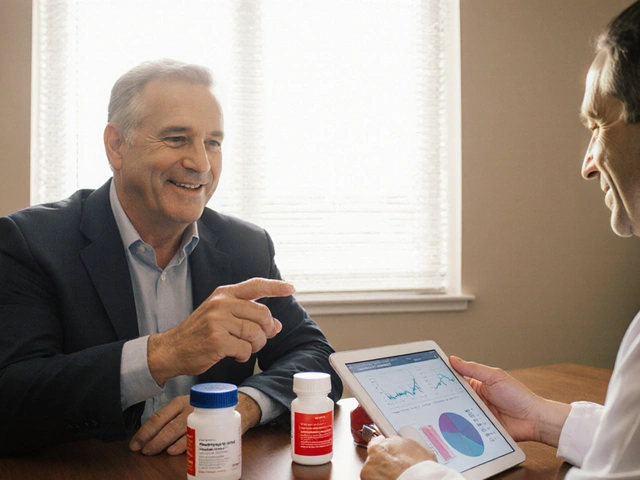
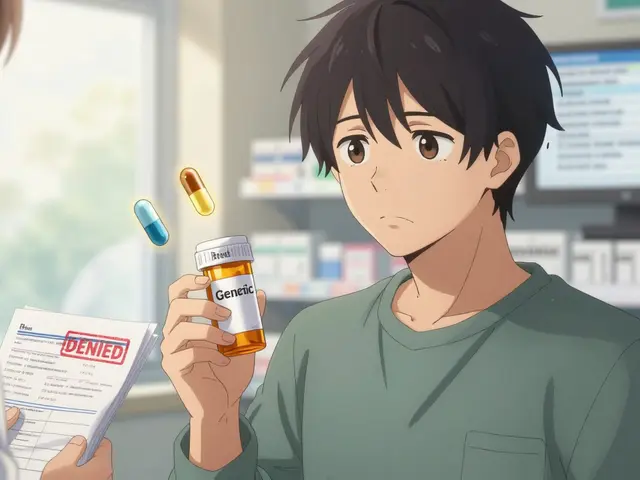

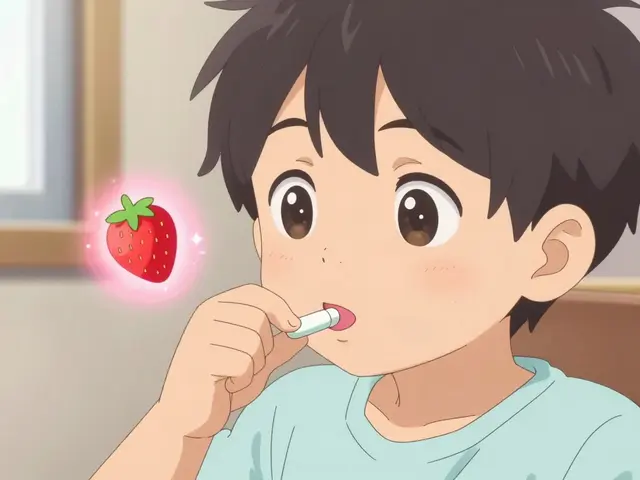
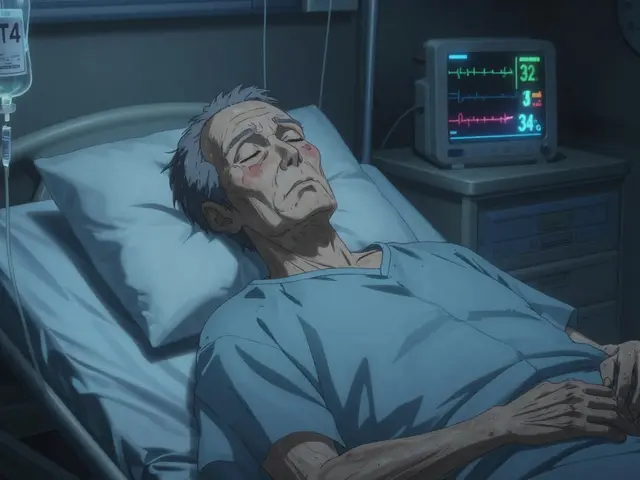
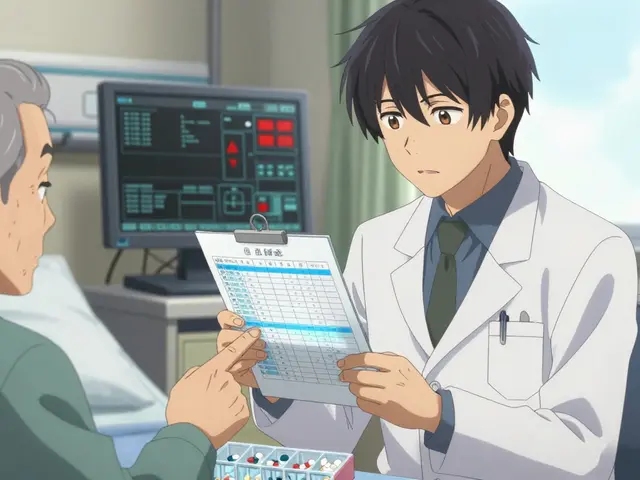
Troy Freund
Interesting how the field’s moving from just keeping outbreaks in check to actually trying to wipe the virus out. It gives a lot of hope for folks who’ve been stuck on suppressive meds forever.
Mauricio Banvard
Yo, the whole CRISPR thing sounds like science‑fiction, but remember the rumors about hidden biotech agendas-big pharma loves a good hype machine. If they pull this off, they’ll own the cure market and we’ll be dancing to their tune. Still, a functional cure would be a game‑changer, no doubt.
Marie Green
Feeling the weight of a herpes diagnosis can be heavy; the new therapies sound promising and give us more options to talk to our doctors about what’s next.
TOM PAUL
Let’s keep the momentum-stay informed, and if you can, join a trial. Every participant pushes science forward!
Ash Charles
Don’t sit on the sidelines-if you’ve got the drive, get into those trials now! You’ve got the power to help shape the future of treatment, and no one else can do it for you.
Michael GOUFIER
It is noteworthy that the current antiviral regimens, while effective at reducing outbreak frequency, do not address the latent reservoir within neuronal tissue. The emergence of CRISPR‑Cas9 technology offers a plausible mechanism for excising proviral DNA, albeit with concerns regarding off‑target effects and delivery methods. Moreover, therapeutic vaccine candidates, particularly those employing mRNA platforms, benefit from established manufacturing pipelines, potentially accelerating their path to market. Nonetheless, rigorous phase III data are required to substantiate efficacy claims and to evaluate long‑term safety. Clinicians should therefore remain apprised of ongoing trials and be prepared to counsel patients accordingly.
michael Mc Laughlin
Sounds like big progress ahead keep hope alive
Paul Hughes
👍 The hype is real, but we gotta keep our feet on the ground. If the trials hold up, it could be a win for everyone.
Tanna Dunlap
While championing personal agency is commendable, we must also consider the ethical implications of rushing unproven gene‑editing therapies into human trials. The temptation to become a quick‑fix hero should not eclipse the responsibility to protect vulnerable participants from unforeseen harms.
Sara Blanchard
That’s a fair point-safety must stay front‑and‑center. At the same time, we can foster transparent communication so participants understand both risks and potential benefits, creating a more inclusive research environment.
Lauren Taylor
The advent of CRISPR-Cas9 as a molecular scalpel represents a paradigm shift in virological therapeutics.
Traditional nucleoside analogues function by attenuating viral polymerase activity, thereby reducing symptomatic flare-ups without perturbing the latent episomal reservoir.
By contrast, genome editing strategies aim to excise or inactivate integrated viral genomes, which necessitates precise delivery vectors capable of traversing the blood‑brain barrier.
Recent advances in adeno‑associated virus (AAV) capsid engineering have yielded serotypes with enhanced tropism for dorsal root ganglion neurons.
Nonetheless, the immunogenicity of viral vectors remains a non‑trivial obstacle, as pre‑existing neutralizing antibodies can curtail transduction efficiency.
Parallel efforts in lipid nanoparticle (LNP) formulation have demonstrated promising biodistribution profiles, yet the challenge of achieving sustained intracellular expression persists.
Moreover, off‑target cleavage events, albeit infrequent, raise concerns about genotoxicity, necessitating exhaustive in‑silico and in‑vivo validation pipelines.
From a regulatory standpoint, the FDA’s guidance on gene‑editing therapeutics underscores the need for longitudinal safety monitoring extending beyond the conventional trial horizon.
Economically, the cost of manufacturing GMP‑grade CRISPR components could be prohibitive for widespread deployment in low‑resource settings.
In comparison, subunit vaccines leveraging recombinant glycoprotein D have shown modest efficacy in phase II trials, with a favorable safety profile.
The mRNA vaccine platform, capitalizing on a well‑established lipid‑based delivery system, offers rapid scalability and modular antigen design.
However, durability of the humoral response remains to be fully characterized, particularly in immunocompromised cohorts.
Integrating adjuvant technologies such as Toll‑like receptor agonists may augment T‑cell mediated immunity, thereby enhancing viral clearance.
Ultimately, a multimodal approach that combines prophylactic vaccination, periodic suppressive therapy, and targeted gene editing may constitute the optimal strategy for achieving functional cure.
Continued interdisciplinary collaboration between virologists, immunologists, bioengineers, and ethicists will be essential to translate these innovations from bench to bedside.
Vanessa Guimarães
Oh, because we’ve never seen a “breakthrough” hype cycle before, right? The biotech press loves to trumpet the next “cure” while ignoring the countless undisclosed trial failures. One would hope that rigorous peer review would temper such optimism, but apparently not.
Lee Llewellyn
Indeed, the pattern repeats itself: a flashy press release heralds a miracle, only for the data to languish in obscurity. While some investors chase the hype, the scientific community remains skeptical until reproducibility is demonstrated. Good science demands transparency, yet the allure of funding often skews priorities. Nonetheless, the continued pursuit of a herpes vaccine is commendable, provided it’s grounded in solid evidence. Let’s hope the upcoming phase III results finally deliver substance over sensationalism.
Mary Latham
i dont think all this hype is real u know most of these trials dont even get past fase 2 lol
Jackie Felipe
Are you sure you’re not just overreacting to a common virus?
Anthony Palmowski
Frankly, the entire discourse suffers from a lack of scientific rigor!!! We need more data, not just optimistic headlines!!!
Jillian Rooney
It’s absurd to celebrate incremental advances when millions still suffer in silence.